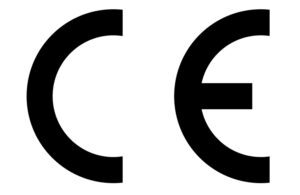 Medtech companies are increasingly looking to the FDA instead of Europe’s CE mark when launching novel products, according to a new report.
Medtech companies are increasingly looking to the FDA instead of Europe’s CE mark when launching novel products, according to a new report.
“Historically, the CE mark has been the preferred route for novel medical technology registration, since its processes were faster, cheaper and more predictable. The situation is now reversed,” wrote the authors of the study, published by Boston Consulting Group and the UCLA Biodesign innovation hub.
They surveyed and interviewed leaders and executives at 102 companies that have achieved registration or approval of a combined 105 novel technologies. A little more than half of the respondents said they are deprioritizing the CE mark relative to FDA approval.
Of the companies surveyed, 90 are headquartered in the U.S. and nine in the EU. One-fifth of the companies are publicly traded.
Industry executives described product registration and approval as “cumbersome and uncertain” under the EU’s new Medical Device Regulation (MDR) for patient and provider safety.
“Common complaints centered on the cost and time of re-registering current SKUs, as well as on expectations for clinical studies and language translation requirements,” the authors wrote. “Smaller companies expressed these sentiments most strongly, while some executives from multinational medtech companies were more circumspect, speculating that MDR may indeed elevate the average quality of products on the market in the EU by reducing the number of undercapitalized new entrants.”
FDA guidance for traditional medical device registration was described as highly or somewhat predictable by 62% of respondents, while only 22% said the same of the CE mark. On the same question concerning digital technology, 32% of respondents considered the FDA pathway predictable compared to 15% for the CE mark.
The report cited encouraging FDA launches such as Medical Device User Fee Amendments to clear backlogs, the Innovation Pathway and Expedited Access Pathway to accommodate novel trial designs, Breakthrough Device designation to encourage innovation, and the Digital Health Center of Excellence to offer guidance for digital offerings.
Brexit may also be partly to blame for the shift. The United Kingdom will accept CE marking through June 2023 as it transitions to its own regulations. “Creating a separate review process for one of the largest European markets lessens the overall value of the CE mark and will likely change the risk-reward equation over the next decade as medtech companies roll out their new offerings,” the study said. “For EU residents, the likely impact will be delayed access to new and improved medical technology.”
The FDA’s gains may not last for long, as the survey respondents noted that contract opportunities in the U.S. and abroad could eventually call for the same metrics as MDR, “giving EU-compliant products and companies a competitive edge once again,” the researchers said.
The report also compared average review time in the EU and the U.S. from the first communication through clearance, finding CE marking (before MDR) came faster than FDA 510(k) clearance.
The survey takers cautioned that their findings are based on the opinions and biases of voluntary participants whose positive or negative experiences with regulators may have influenced their decision to take part, among other study limitations.
“Despite these limitations, this is the first study in more than 10 years that attempts to provide an industry-wide perspective and benchmarks on the industry’s experience with regulatory and reimbursement programs, processes, and authorities in the US and the global regulatory theater,” the researchers said.